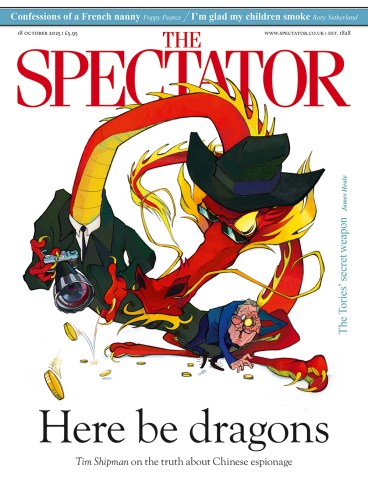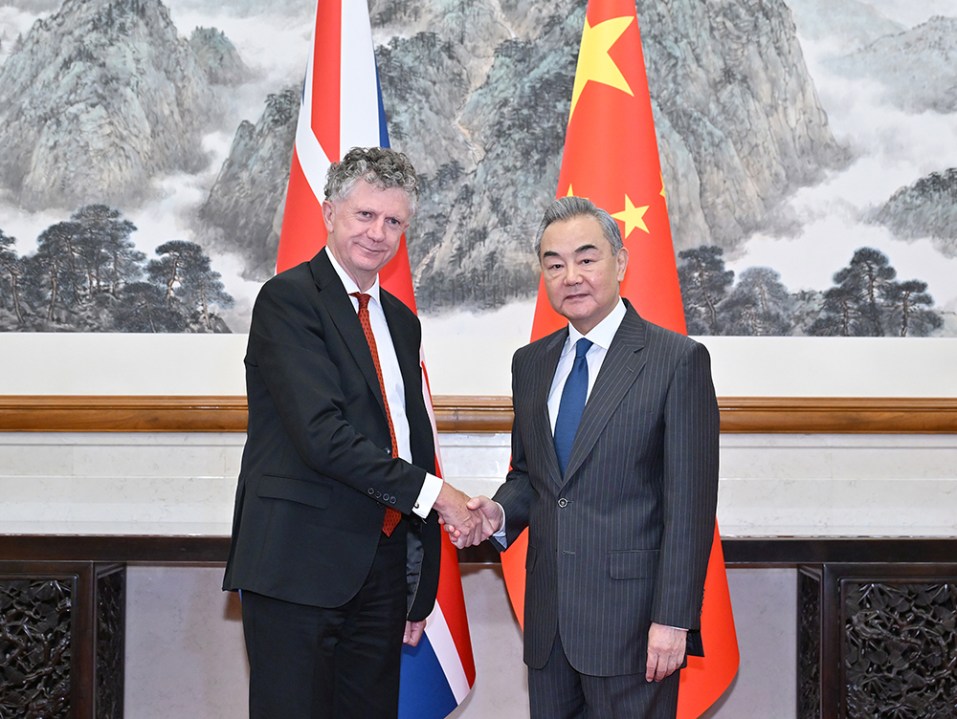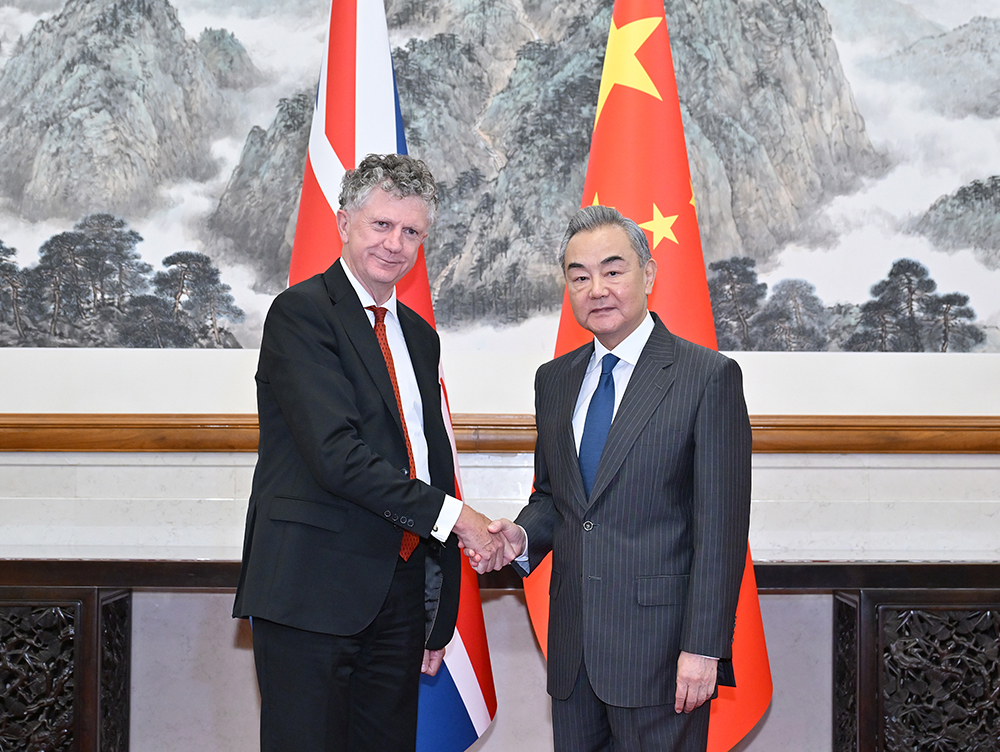
Exactly a year ago, this magazine warned that ministers were showing a dangerous naivety towards China. We revealed that the Chancellor, the Foreign Secretary and the Prime Minister were all intent on cosying up to Beijing. They were scornful of the wariness Conservative ministers had shown towards the Chinese Communist party. The Labour leadership believed that their pursuit of growth could be supercharged by Chinese investment. They hoped one of their missions – the drive to decarbonise the grid – could be facilitated by Chinese tech. They thought Tory attitudes to China were warped by ideology and a more pragmatic line towards Beijing would be economically rewarding. A ‘China Audit’ was commissioned by the Foreign Office to show how much British balance sheets would benefit from Chinese engagement.
It would not have required much investigative effort to find evidence of Beijing’s malevolent intent
It should have been no surprise that a government with no coherent growth plan, in hock to net-zero fundamentalism and wilfully uncritical about geopolitics should have been tempted by China. And ministers, naturally, found willing sherpas in this mission in the Foreign Office, staffed by experts in the art of appeasement, architects of the Hong Kong handover and well practised in surrender as statecraft. Trade missions were begun and ministers travelled to Beijing to bend the knee to the red princes. They celebrated as they secured £600 million of investment, a rounding error in Beijing’s accounts, while billions of pounds were spent paying China’s ally Mauritius as it took control of British territory in the Indian Ocean.
This humiliating propitiation is the context in which we must view the collapse of the China spying case. In April last year, Christopher Cash and Christopher Berry were charged under the Official Secrets Act with passing information to a Chinese intelligence official. Both firmly deny the allegations. But the Crown Prosecution Service dropped the charges weeks before the trial’s intended start because, it was claimed, the government had failed to provide sufficient proof that China posed a threat.
It would not have required much investigative effort to find evidence of Beijing’s malevolent intent. China has suppressed the rule of law in Hong Kong, supplied us with climate tech manufactured with Uighur blood, lied about the Covid pandemic, sought to infiltrate our telecoms network, launched cyber attacks on citizens, business and government and deployed espionage against every arm of the British state. The collapse of the case is either extraordinary laziness, worrying myopia or, worse, a deliberate attempt by the government to curry favour with Beijing.
Facing increasing pressure, ministers this week pinned the blame for the trial’s collapse on Matthew Collins, the deputy national security adviser. According to Dan Jarvis, the security minister, Collins had been given ‘full freedom to provide evidence without interference’ that China threatened Britain’s national security. Neither the politically-appointed national security adviser Jonathan Powell nor ministers, Jarvis claimed, were involved.
Suggesting that Collins was alone responsible for the evidential failure is ludicrous. If Collins acted under direction, he is being scapegoated. Ministers and advisers tend to instruct civil servants on such matters; if so, they are the ones that decided to ignore the CPS, collapse the trial and appease Beijing. To misquote Jeremy Thorpe, greater love hath no national security adviser than this: that he lays down his deputy for his life. If, improbably, Collins did act alone, then ministers have lost control of security matters, leaving officials to make vital decisions without democratic input. Both circumstances are deeply concerning.
Instead of addressing such issues, Jarvis argued that the CPS had been ‘hamstrung’ by the ‘antiquated’ Official Secrets Act. He blamed the previous government for failing to swiftly replace it or declare China a national security threat. But suggesting the last government did not recognise China’s threat is simply wrong. The 2021 Integrated Defence Review branded the country the ‘biggest state-based threat to the UK’s economic security’, a position maintained in the updated 2023 document. Yet Jarvis cherry-picked occasions on which ‘challenge’ was used instead. Examples abound of ministers – not least Tom Tugendhat, Jarvis’s predecessor – dubbing China a threat. Old Tory hopes that Xi Jinping was a man to do business with – or at least to share a pint – had long been dispelled.
The government’s position has been criticised by every public figure with any knowledge of China who is free to speak, including two former cabinet secretaries, two former heads of MI6, a former director of public prosecutions and a professor of public law at the University of Cambridge. All made clear that the accused pair could have been prosecuted under the old legislation. Many pointed to a Court of Appeal ruling last year in which a group of Bulgarians was found guilty of spying for Russia. That case established a precedent that ‘an enemy’ could be defined as an ongoing threat.
The government has, under duress, agreed to publish the witness statements Collins gave to the CPS. But that is only a start. We need to see all communications between Downing Street, ministers, Powell and Collins. Powell must be held accountable before parliament. And the long-delayed ‘China Audit’ must be published. It is hard to understand why it has taken so long. After all, on current evidence, it is likely only to contain one word: kowtow.









Comments